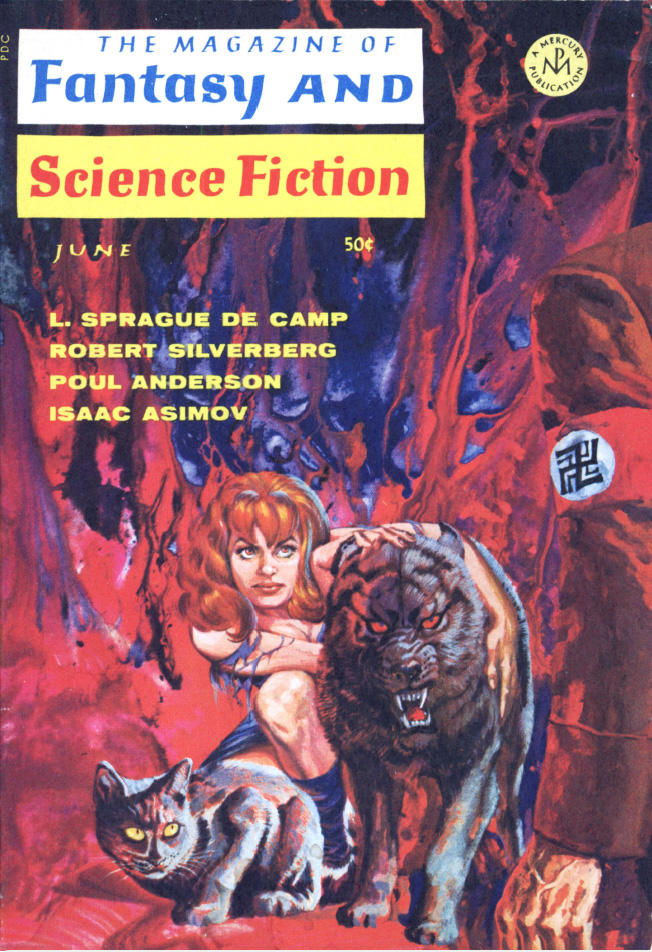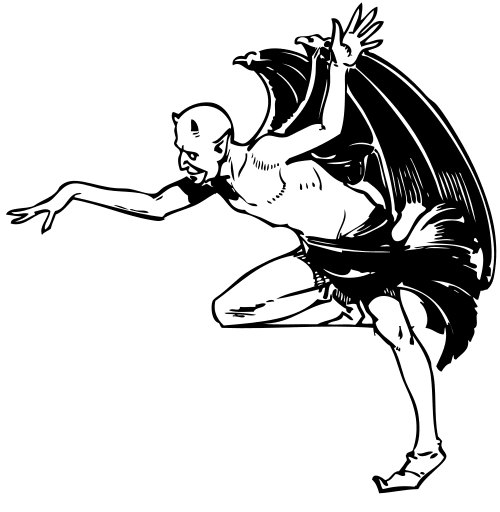
by Gideon Marcus
Impending collapse
The end may be near for the nascent would-be-state of Biafra. For two years, the Nigerian breakaway has seen its land systematically (re)taken, and the eight million Biafrans, mostly Ibo people, have been crammed into ever small regions under Biafran control—just 3,000 out of an original 29,000 square miles.

Starvation rages, killing more than gunfire. Yet the Biafrans remain unbowed, converting diesel generators to run on crude petroleum, keeping churches open (at night, anyway), and getting food via threatened air strips.
But on the 22nd, the capital and last Biafran city, Umuahia, fell to Nigerian forces. Chukwuemeka Odumegwu Ojukwu, President of Biafra, has vowed he will continue the struggle in guerrilla fashion. Only Gabon, Haiti, Ivory Coast, Tanzania, and Zambia have recognized the secessionist state, although tacit assistance has been provided by such diverse states as France, Spain, Portugal, Norway, and Czechoslovakia.

At this point, it's hard to imagine the Biafran experiment succeeding. But surely there must be more that we can do apart from watch helplessly. I wish I knew what it was. Support the Red Cross, I suppose.
Impending mediocrity
I don't have a great segue from that bummer of a news item. All I have is the lastest issue of Fantasy and Science Fiction. While it's not entirely unworthy (the opening serial is pretty good), the rest offers little respite from the bleakness of the real world:

by Jack Gaughan
Operation Changeling (Part 1 of 2), by Poul Anderson
Back in the '50s, Poul had a great series that took place on a parallel Earth. Its history was not dissimilar to ours, but wizardry replaces technology in many regards. It's a bit like Garrett's Lord D'Arcy series, but a touch sillier. The stars of the series are a magical duo comprising a werewolf and a magic-using dragoon Captain. In the latest story (a decade ago!) the two had gotten married. In the latest installment, Ginny and Steve are the proud parents of a beautiful little girl.
Unfortunately, Valeria Victrix has been born into a difficult time. Adherents of St. John, whose outwardly clement brand of Christianity hides disturbing cultist elements, are waging a war against authority and the military-industrial complex—including the defense contractor that employs Steve. The Johnnites are essentially stand-ins for the current peace movements, albeit more sinister.
The conflict with the less-than-civil resisters recedes in importance, however, when on her third birthday, Valeria is abducted by no less than the demonic forces of Hell. It is now up to Steve and Ginny to rescue their little girl before she is incurably corrupted…and to determine if the Johnnites are at all responsible!
Anderson has three main modes: crunchy, compelling science fiction; crunchy, dull-as-dirt science fiction; and lightish fantasy. This short novel, despite the dark subject matter, promises to be the most fun romp since Three Hearts and Three Lions.
Four stars so far.
The Beast of Mouryessa, by William C. Abeel
A French sculptor is commissioned to create a replica of an obscene, demonic figure, unearthed recently in the Avignon region. The original stone creature has a history of causing catastrophe to those who behold it, but the lovely matron who wants the copy seems unperturbed. Of course, the sculptor has all sorts of ill feelings and second thoughts, but he does nothing about them. In the end, he is possessed by the spirit of the thing, and awful stuff ensues.
Aside from all the sex and frequent references to the statue's enormous dong, this story is pretty old hat. Lovecraft did this kind of thing better.
Two stars.

by Gahan Wilson
London Melancholy, by M. John Harrison
A host of eerie mutants roam post-apocalyptic London in this absolutely impenetrable, unreadably purple piece.
One star.
For the Sake of Grace, by Suzette Haden Elgin
Thousands of years from now, Earth and its solar colonies have organized into a patriarchal, caste-based system. The Kadilh ban-Harihn has much cause for joy: four sons who have all passed the stringent test to become 4th degree members of the Poet caste. But he also has a hidden pain; his sister was one of the rare women to dare entry into the coveted ranks of the Poets. Her fate for failing was that of all women who fail—eternal solitary confinement.
'Unfair!' you cry? Well, at least it keeps women from trying such a foolhardy endeavor. Which is why it hits the Kadilh all the harder when he learns his youngest child, his only daughter, also has decided to try to be a Poet, a task of which she is most certainly incapable…
This is a scathing piece, a refreshing attack on sexism. I'd give it higher marks if it had included even one poem, given the theme, but I still quite liked it.
Four stars.
The Power of Progression, by Isaac Asimov
The Good Doctor explains why our current rate of population growth cannot go on—even if we manage to get off planet, that just means the universe will be clogged with humanity within the millennium.
I appreciate the doomsaying sentiment, but there comes a point when exponents become specious, a masturbatory effort in mathematics.
Three stars.
Copstate, by Ron Goulart
I used to like the tales of Ben Jolson, lead agent of the shapechanging Chameleon Corps, but they've gotten pretty tired of late. This last entry is the least. Ben is tapped to infiltrate a tightly controlled security state to retrieve a revolutionary polemic.
Goulart is capable of writing funny, light, riproaring stuff, but this one is just a bust.
Two stars.
The Flower Kid Cashes In, by George Malko
Item two in the cavalcade of anti-utopian incomprehensibility. Per a conversation I recently had with David and Kris:
Me: Can anyone explain the last story in this month's F&SF to me?
David: Not really. Aging hippie survives after the Bomb falls and sort of commits suicide by staying true to his priniciples? I think it was too concerned with being literary to mean something or be about anything.
Kris: I am not even sure if it is trying to be literary so much as "with it". But either way it seems very hollow.
Your guess is as good as mine. At least it's short. Two stars.
The Body Count
Comparing the lastest F&SF to the Biafran tragedy is probably beyond the realm of good taste. I'll just note that 2.7 stars is an inauspicious sign. However, given that the first few issues of the year were significantly better, I don't think this lapse foretells a permanent downturn.
At least some things are salvageable. See you next month.







![[May 20, 1969] Ad Astra et Infernum (June 1969 <i>Fantasy and Science Fiction</i>)](https://galacticjourney.org/wp-content/uploads/2024/05/690520coverfsf-652x372.jpg)
![[April 26, 1969] Downbeat (May 1969 <i>Fantasy and Science Fiction</i>)](https://galacticjourney.org/wp-content/uploads/2024/04/690424coverfsf-667x372.jpg)








